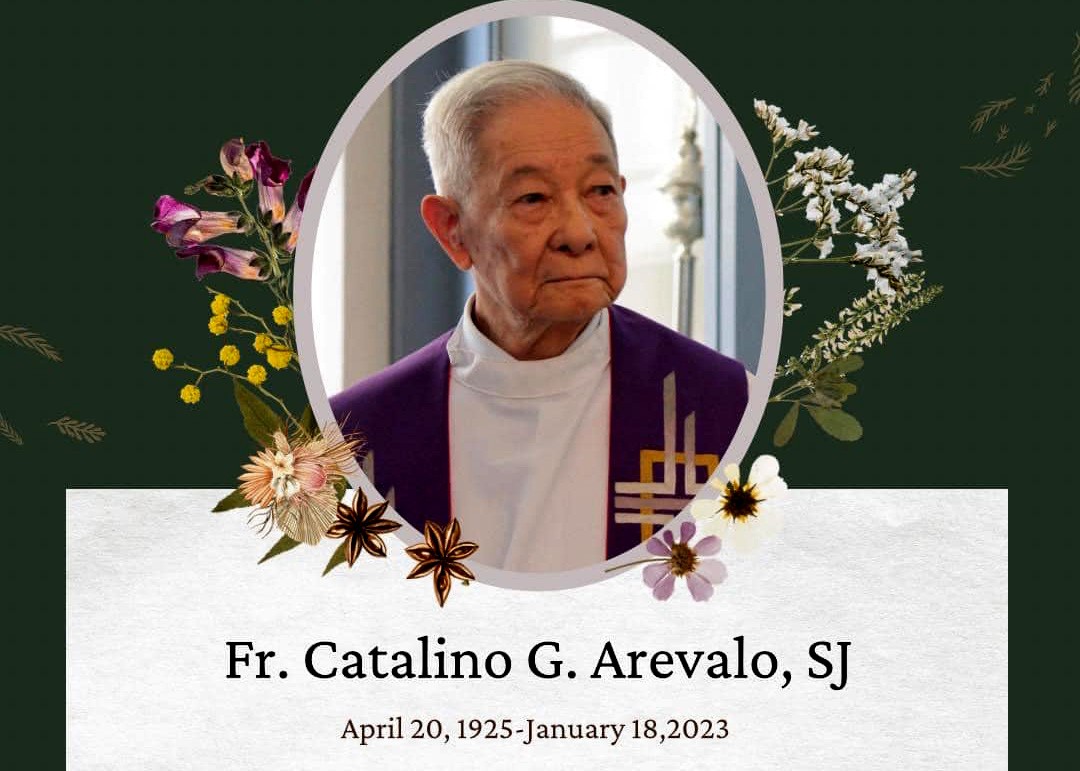Prominent Filipino Jesuit priest Catalino Arevalo, dubbed the “Father of Asian Theology,” died early morning of Wednesday, January 18, three months before his 98th birthday.
“Our dear mentor and friend, Fr Catalino Arevalo, SJ, whom we fondly called “Fr Revs,” has passed on,” read a note posted on social media by Bishop Pablo Virgilio David of Kalookan.
“May this great teacher to whom we owe our love for theological learning and the spiritual discipline of discernment rest in the peace of God’s embrace,” said the prelate.
In 1998, Father Arevalo was named the “Father of Asian Theology” by the Ateneo de Manila University at a convocation commemorating the feast of Saint Ignatius of Loyola.
The university cited the priest’s more than 9,000 pages of theological writings “with an Asian emphasis” in the name of bishops’ conferences and other Church leaders.
The Jesuit was the first Asian on the Holy See’s International Theological Commission and the first convenor and founding member of the Theological Advisory Commission of the Federation of Asian Bishops’ Conferences (FABC).
After a 1970 trip to Latin America, Father Arevalo gave the first lectures on liberation theology in the Philippines. That same year he served as a “peritus” (expert) at an Asian bishops’ meeting that would evolve in 1974 into the FABC.
He drafted the first FABC statement, the landmark “Evangelization in Modern Day Asia,” which remains “the most influential articulation … of the local Churches of Asia.”
The late Cardinal Jaime Sin of Manila named Father Arevalo “Dean of all Filipino Theologians.”
In 1997, the Jesuit priest received the Vatican’s “Pro Ecclesia et Pontifice (For Church and Pope)” for distinguished service to the Church.
“He had waited for this transitioning to the great beyond impatiently,” said Bishop David in his post on Facebook about the death of Father Arevalo.
“All his friends know how he had made it his habit to say, after each visit from other good friends and former students since about ten years ago, to say ‘This might be our last encounter, so I have to say my ultimate goodbye,’” said the prelate.
“I reminded him each time I saw him again that he had already said what he thought was his ultimate goodbye the previous year, but he would just chuckle and say, ‘Then I should say it again, because this might really be our last encounter,’” he added.
Bishop David said the Jesuit’s “farewell” became “an almost yearly ritual.”







